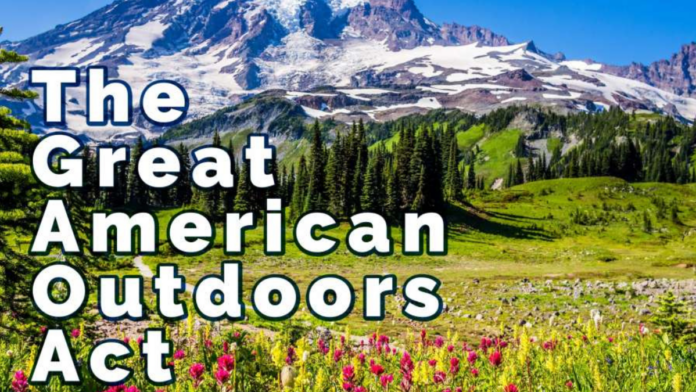Having just spent several weeks visiting many of our states and national parks along the Colorado Plateau, I can tell you firsthand that America is truly blessed with an abundance of natural wonders.
And yes, they deserve to be protected and properly maintained. However, the recently passed Great American Outdoors Act, likely signed into law by President Trump, is not the proper remedy for protecting and funding our national park system.
While the bill provides funding to help address the backlog of maintenance needs in our national park system, it also comes with a high price tag.
Title II of the legislation makes funding permanent for the Land and Water Conservation Fund (LWCF), committing $900 million per year of federal oil and gas revenues towards the purchase of new lands to be added to the federal estate without Congressional oversight. This is a land grab pure and simple. It will violate private property ownership and perpetuate the government’s mismanagement of the federal estate.
So, should we overlook the bad to keep the good? I say no. And President Trump should say no, too.
Since the LWCF’s original passage in 1965, four federal land agencies have spent $11.4 billion to acquire more than 5 million acres of private land, and state and local governments have acquired more than 2.6 million acres. The Great American Outdoors Act will roughly triple spending on land acquisition over average historic appropriation levels. The fact is that the federal government already owns far too much land – approximately 640 million acres or 28% of total U.S. acreage. The federal government owns more than half the land in the eleven western states and Alaska. More than 90% of the land in a number of Western counties is federally owned and more than 75% in many more counties.
And, how has the government managed these lands? The infrastructure repair backlog bill for the National Park Service has grown to a whopping $11.9 billion due to Congress’s long-term inconsistency and neglect for these issues. The maintenance backlog at other agencies adds more than $7 billion to that total. The last thing the government needs is more land to take care of.
And here we are, helping them to take even more land with no Congressional oversight.
The other consequence of expanded federal land ownership is the harmful impact on the local economies.
Putting more land under government control makes it easier for special interest groups to restrict beneficial multiple use such as ranching, mining, energy production, and the building of transmission infrastructure or pipelines.
Further, since federal lands are exempt from property taxes, they become a financial burden on local governments. While some of the lost property tax is paid through what is called the Payment in Lieu of Taxes (PILT) program, the amount received is hardly sufficient.
For instance, a recent study showed that Utah’s 32 million acres of federal land would be subject to property taxes at lowest-use appraisal of more than $1 billion. PILT payments to Utah were $40 million in 2019.
Under this legislation, the need to address the maintenance backlog at our national parks were used as trade bait by Democrats who seek to take even more land out of private ownership.
Unfortunately, some Republicans, especially those seeking a political win in an election year, were willing to take that trade. By keeping the Senate-passed package intact, the U.S. House of Representatives has signed off on a bill that will shortchange the American taxpayer and hamper energy production.
The problematic Great American Outdoors Act should have been amended to protect taxpayers from an ever-expanding federal estate. Now, more land will be laid to waste in government hands.
Thomas J. Pyle is president at the Institute for Energy Research, a non-profit energy policy think tank.

